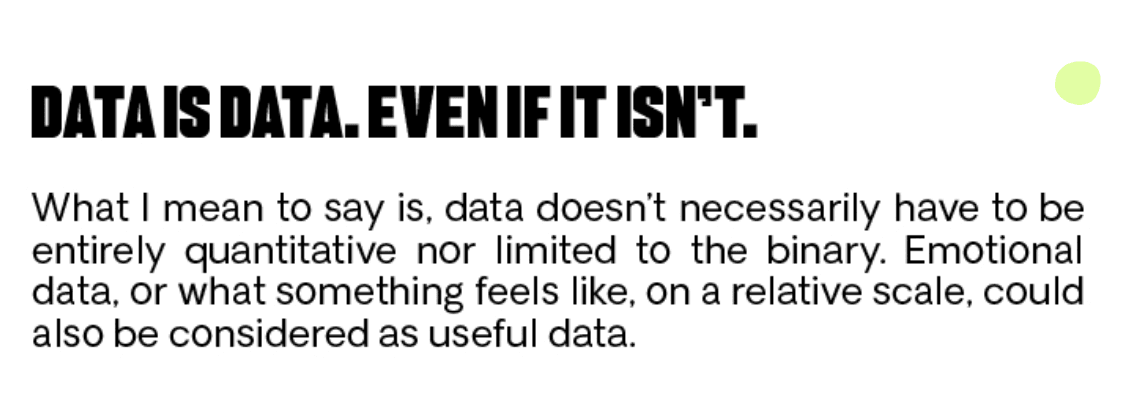warm data
It teaches them that data is created, not found; and that creating it well demands humanity, rather than objectivity
Melanie Feinberg • The Myth of Objective Data
A founding motivation for the pair was a belief that the discussion of climate change needed to be participatory, not a one-way lecture. "One of the things that frustrated me so much while working for major environmental groups is this concept that there are anointed people who 'know' and there are people who are 'not knowing'," says Quante. "But
... See moreRichard Fisher • Why We Need New Words for Life in the Anthropocene

The power in softness
We are, each and every one of us, a collection of our lived experiences. Our lived experiences shape us, how we interact with the world, and how we live in the world. And our experiences are valid.
Ijeoma Oluo • So You Want to Talk About Race
Can even the most unfathomable statistic feel real if it's not accompanied by a singular human's story? We need both stories and stats. The hyper-personal and the sense of scale.
Ann Friedman • The Stats vs. The Story
If in our daily lives we tend to overlook the diverse, situationally textured sense-making actions that information seekers, conversation listeners, and other recipients of communicative acts perform to make automated information systems function, we are even less likely to acknowledge and value the interpretive work of data collectors, even as
... See more






